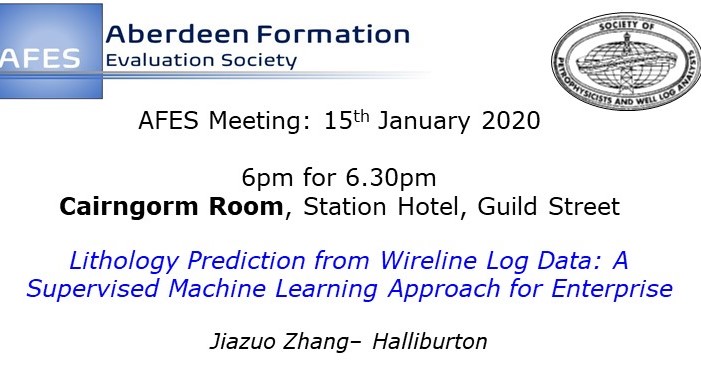
Haliburton talk on Artificial Intelligence
Abstract
Knowledge of the lithology of the subsurface is essential for exploring for and developing hydrocarbons. It helps us better understand depositional environments, matrix and fluid compositions, production characteristics, and ultimately exploitation potential. In the subsurface, the interpretation of wireline data plays a critical role in deriving this insight. However, manual interpretation of lithology is time consuming and costly, and the results are often subjective and inconsistent between interpreters. Supervised approaches to machine learning train models using human interpreted labels and have the ability to capture the knowledge and nuances of an interpreter’s decisions consistently and rapidly. Presented here is a supervised ML pipeline to assist geologists and petrophysicists in making lithology predictions from wireline data. By learning a limited amount of wireline or logging while drilling (LWD) with the best available lithology interpretations, this pipeline generates predictive models that deliver rapid and consistent lithology interpretation.
Biography – Jiazuo Zhang
Jiazuo is currently working as a data scientist at Halliburton-Landmark, where she is responsible for developing machine learning solutions for geoscience. She has been with Haliburton for two years having previously worked for total as a geostatistician. Jiazuo has a PhD in computational petroleum engineering from Imperial College London.
